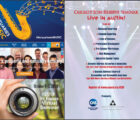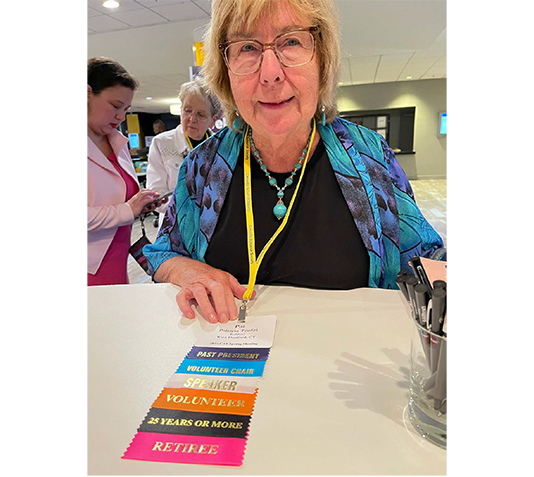I have been in the insurance industry for a long time and met a lot of people along the way. When I read the actuarial comic in the prior Actuarial Review, one professional I know came to mind. His name is Martin, and he gave me permission to tell his story.
Martin was raised in a small town in the rural Midwest. As a juvenile, Martin was too short (5’2″) to play basketball and too light (95 pounds) to play football. He was regularly beaten up at recess and at the local public swimming pool. Wearing thick glasses and being a “nerd” didn’t help.
He enjoyed scientific experiments and wanted to work for NASA, which was the only type of scientific job his high school counselors knew to tell him about. He decided to go to college and get a degree in chemistry or physics.
Being in the first generation of his family to go to college, he picked a local teacher’s college because it wasn’t as intimidating or as expensive as the “big schools.” He didn’t know that the first job you get upon graduating has a lot to do with the school you graduated from.
His parents helped financially, and he took jobs over summer vacation to make ends meet. His least favorite job was working on a crew on a college garbage truck.
When he graduated, his chosen STEM field was flooded with unemployed experienced practitioners. There was no hope for a new graduate from an unknown college with no experience to get a job in his field of study. He had a diploma, but no job prospects.
Just before graduation, Martin’s soon-to-be father-in-law introduced him to a relative in insurance, who introduced Martin to an actuary. This was a profession Martin had never heard of before, but after spending time with the actuary, Martin decided this was the right career for him. With no exams, he had little chance of getting an actuarial job. So, Martin and his newly wedded wife took a chance, moved to a large Midwest city where he applied for every job in the insurance industry that he could find.
He finally got a job as an underwriter, another profession he had not heard of before. He had to take insurance courses in order to keep his job, so studying for actuarial exams was delayed for a few years.
Once he began studying for the actuarial exams, he had to do so with no financial support and no time allotted for studying at work. He signed up for an exam prep course at his own expense. Part way through the study cycle, the “server”6 went down and was not restored until after the exam date.
About that time, the branch manager fired Martin when he found out he was looking for a job as an actuary while he trained as an underwriter. Jobless, he started the job search again. He got two interview opportunities, one on either coast. He accepted the job in New York City with the only company that would pay his way for the interview.
Moving to New York with his wife at his own expense half-way across the county wasn’t easy. They found an apartment they could afford, but the commute was an hour and a half (each way) from his new job.
Once Martin had passed five exams, he took a job at a well-funded startup and thought his days of changing companies were over. So, he, his wife and their newborn son moved halfway across the country, back to the Midwest.
Once there, the young couple learned that their newborn had a heart defect that would require surgery. Martin juggled the new job, new supervisory responsibilities and exam preparation, with the surgery looming on the horizon.
Martin failed Part 7 multiple times, but finally he became an ACAS. Then the startup lost funding, and Martin was once again without a job. He accepted another job “back East” and moved nearly half-way across the country, again.
He passed another exam, leaving only Part 9 between him and Fellowship. He took it, and failed it, five times. He passed on the sixth try. It took him 15 years to become an FCAS.
By the time he was a Fellow, he had become vice president and chief actuary of a top 25 insurer and father of two sons. He went on to be a vice president and chief actuary of an international insurer, and an executive of a Fortune 100 company.
Overcoming obstacles
When he made the wrestling team in high school, the bullies disappeared. He could only date short girls but ended up with the perfect wife, and they are still happily married. (She is about his height, and taller than most of his relatives.) But being in the shortest two percentile of adult males, Martin had to find another way to stand out.
NASA has seen ebbs and flow in their employment over the years, while insurance is a relatively steady employer. Martin unknowingly traded the job of his dreams for a much stabler line of work.
Working as an underwriter enabled him to view how insurance is transacted at the agent and branch office level — knowledge that he has used often in his career. It also started him on a path to CPCU. Later, his underwriting experience and CPCU designation enabled him to be in charge of an underwriting division while still chief actuary and chief risk officer at the company for which he worked.
In New York City, his commute turned out to be a place where he could study. He turned a disadvantage, the hour-and-a-half commute, into an advantage: “study time.”
When Martin, his wife and son moved back to the Midwest, they did not know of the infant’s heart defect, but they also didn’t know that the world’s best pediatric cardiology surgeon for their son’s medical issue was in the same city that they had moved to. The move was difficult for the young couple, but God made sure their son had the best medical care available. Anywhere! The surgeon was world-renowned for performing exactly the procedure their son needed. The surgery was successful, and Martin’s son is now a healthy adult.
Epilogue
You may know Martin as Grover Martin Edie.
The purpose of this article is not to boast, but to point out that all of us have obstacles to overcome and to put perspective around one actuary’s journey.
We all have shortcomings, disadvantages and obstacles. Every one of us has something that can be used as an excuse for our failure or something to overcome and give us the resolve to succeed.
Some people are successful in spite of something. Others fail because of something. Often, it is the same “something.”
The question is “What are you going to do about it?”












